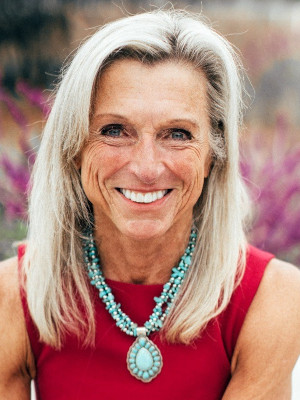Family offices are answering a lot of client questions these days. Is it time to make changes to their investments or asset allocations in these troubled times of tariffs, gyrating stock markets, the sinking Canadian dollar and the possibility of a recession?
Indeed, stock markets lost about $6 trillion over Thursday and Friday last week and neared bear-market territory, frightening investors around the world.
Yet family office executives and their CIOs say a solid investment strategy should be able to weather these storms with no or minimal repositioning. The fundamental strength of a diversified investment plan across many asset classes has, after all, served families well through COVID-19, oil price crashes and bursting tech bubbles in the past, they say, and it will do the same again.
We talked to four advisors about asset allocations, portfolio construction and the need to reassure families who have been doom-scrolling the latest announcements from the president of the United States.
Greg Nott, senior vice-president and chief investment officer, Northwood Family Office, Toronto

At Northwood, investment portolios are based on the client’s circumstances rather than the state of the markets, Nott says.
“If their goals haven’t changed, or their liquidity requirements haven’t changed, or they’re not losing sleep over the market volatility, then in all likelihood we wouldn’t make much adjustment,” he says. “It’s better to remove some of the noise and emotion and focus on the longer term and not try to guess what’s going to happen over the next week or month or even quarter.”
Nott says he stresses to clients the importance of diversification, including holding some cash, fixed income, public equities and private market investment.
But investment managers also keep an eye on dislocations in asset classes and valuations as the economic pendulum swings. Even before the current trade war, Northwood had pulled back a bit from the U.S. market, says Nott.
“We have, in our equity portfolios, been underexposed or underweight in the U.S. market. That was not a tactical call on the political situation. It was more a view from our managers that the U.S. equity market had gotten very expensive and was very concentrated [in big technology stocks].”
Investors can still find very good companies and opportunities in the U.S., Nott adds. “When you have a long-term investment focus that is going to outlast the current administration, you don’t want to let your emotions manage your investment decisions.”
Nott says he doesn’t expect Canadian markets to perform drastically differently than other regional markets in Europe or Asia.
Northwood meets with clients every quarter, he notes. “Just in the last month or two, given what’s going on with the tariffs and the Canadian political situation, we’ve had a bit more frequent calls from our clients asking us about those situations.
“In times such as these it is important to keep in close communication with clients, which we are doing, in order to provide guidance and remind them we manage well-diversified portfolios that consist of much more than just public equities.”
Greg Rodger, president and chief investment officer, HighView Financial Group, Oakville, Ont.

Rodger says his firm is confident that its current portfolios are well-positioned to weather disruptions.
“We’ve always been big believers in taking a longer-term view in how we construct portfolios, which includes good diversification by asset class, by geography and a hefty allocation to non-public securities.
“We did make a strategic change in our portfolios probably about four years ago. We lessened our exposure to Canadian stocks, and increased our exposure to global stocks, not necessarily just in the U.S. That was made not because we had concerns about Canada, but more because there are just so many opportunities beyond our borders.”
Rodger says a client will occasionally ask about potential implications for their portfolio of current events, but no one has asked HighView to eliminate exposure to U.S. stocks as of yet.
“Even when things are running smoothly, we always remind clients that market volatility is the price you pay for being invested in stocks,” he adds. “Markets were up strongly the last couple of years. We’ve been reminding clients it won’t always be this way.”
HighView partners with third-party investment managers who are expected to adapt to the changing environment, Rodger says.
“Everybody focuses on the stock market and the media headlines, but when you come back to a well-diversified portfolio the volatility is really quite low,” he adds. “So, for the vast majority of our clients, portfolios are still up in value since the start of the year, even though equity markets may be negative.”
Dan Riverso, chief executive officer and chief investment officer, Jesselton Capital Management, Toronto
“Have a plan, stick to the plan, try not to let emotions affect the process,” says Riverso. “Tactically adjusting the portfolio is acceptable but not trying to time the market.”
Clients might panic and want to pull out of U.S. investments, but he warns that doing so takes opportunity off the table.

“You have to realize that a lot of these companies might not be aligned with Trump or what’s happening at the political level, so why punish those companies? Some companies might also benefit from tariffs.”
In terms of diversification, Riverso says gold and cash have a place in portfolios during troubled times. Value can also be found in fixed-income markets, and he is a fan of private debt, with some reservations.
“A lot of family offices are allocated to private equity and real estate. There’s always a question of should they be diversifying themselves a bit further beyond those two asset classes.”
The markets have been through COVID-19, the financial crisis and the bursting of the tech bubble, but not all investment professionals have experienced those benchmarks, says Riverso. “I think we’re heading for some rough seas. It’s going to be difficult to navigate.”
It’s important to set expectations with clients and let them know markets move in cycles.
“It’s about having a plan and executing, both strategically and tactically. … I know some people say just ride the wave, but you want to be in a position to take advantage of opportunities when they arise.”
Carol Schleif, chief market strategist, BMO Private Wealth, Minneapolis, Minn.
It’s natural to want to react to frenzied markets, but it’s important to fight that inclination and remember why you’re in diversified assets, says Schleif.
“We traditionally do different asset classes, different capitalizations within those asset classes. Global investing is a big focus,” she says.
Clients in the family office space often invest in alternatives such as private capital, private credit and real estate, she adds, and balanced portfolios have held pretty steady. The Canadian index had been basically flat on the year up until the post-tariff announcement declines, she notes.
Private capital offerings have been very good for BMO clients in Canada, adds Schleif, who is based in Minnesota. “It’s very patient capital. It looks through some of the wiggles in local markets and focuses on very good economic underpinnings.”

She warns against overreaction to U.S. politics. “It’s hard to get diversification by just investing in Canada or some of the other areas. You really need to have some U.S. investment to keep that global market capitalization equalized. The U.S. right now is about 60 per cent of global market capitalization.”
Regardless of the politics of the moment, some economic themes endure.
“We’re not going to turn back the technology innovation front. We’re not going to turn back the medical innovation front, we’re going to accelerate it.”
“They might be impacted by tariff policy, or the uncertainty surrounding its implementation in the short run, but that fundamental theme is going to play through. And there are ways to play that theme in the fixed-income markets, in the stock markets, in private capital.”
Politicians come and go, she says, “but our economies move on and so it’s really important to figure out how to put capital to work in wise places. Multi-generational families have the distinct opportunity to be able to participate in those long-term trends.”
The Canadian Family Offices newsletter comes out on Sundays and Wednesdays. If you are interested in stories about Canadian enterprising families, family offices and the professionals who work with them, but like your content aggregated, you can sign up for our free newsletter here.
Please visit here to see information about our standards of journalistic excellence.



